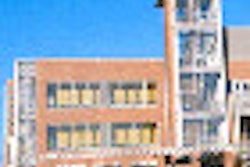
The University of Colorado (CU) Denver School of Dental Medicine has dropped its Accelerated International Faculty Program in response to concerns that the program was "pushing the envelope" in terms of substituting credentials for coursework.
“It was a mistake.”
— Denise Kassebaum, D.D.S., dean,
University of Colorado Denver School
of Dental Medicine
"It was a mistake," Denise Kassebaum, D.D.S., dean of the dental school, said of the program -- which she created -- in an interview with DrBicuspid.com.
The school has two degree programs for foreign-trained dentists -- one for students with a two-year curriculum, and one for working faculty that requires four years of classes.
But under Dr. Kassebaum's accelerated program, two foreign-trained faculty members earned doctor of dental surgery degrees in four months and two others earned them in about two years, the Denver Post reported. They needed the degrees to obtain Colorado dental licenses, the Post noted.
The issue came to light after a CU administrator expressed concern about the duration of the program's independent study requirements. Marguerite Childs, associate vice chancellor for academic affairs, questioned Dr. Kassebaum's plan to award 12 hours of independent study credit to the professors for work done during the 2008 winter break, Dr. Kassebaum confirmed.
"If you are granting 12 hours of independent study during the intersession period, I question if someone can really do that much 'learning' in that period of time," Childs wrote in an October 7, 2008, e-mail to Dr. Kassebaum according to the Post. "It has the appearance of you trying to get around the scholastic requirements."
Other credentials considered
But Dr. Kassebaum noted that some of the foreign-trained faculty involved had more than seven years of postdoctoral training and that the program was based on competency. "These are specialists in dentistry in the U.S. with the highest levels of credentials," she said.
In addition, those faculty enrolled in the program were by invitation only, Dr. Kassebaum noted.
M. Roy Wilson, chancellor of the University of Colorado Denver and the Anschutz Medical Campus, told the Post that the program had not been approved by university administrators outside the dental school.
He ultimately called in two outside dental academics in to review the dental school's credentialing programs. Their report, issued April 6, recommended that the accelerated version should be discontinued.
The program was "really pushing the envelope" in terms of substituting credentials for coursework documentation, Kenneth Kalkwarf, D.D.S., dean of the dental school at the University of Texas Health Science Center at San Antonio and one of the two reviewers, told the Post.
Dr. Kassebaum has already changed some of the CU dental school's policies following a series of critical reports by the Post published earlier this year. A CU faculty dentist had worked on patients without an active license at the university's clinic, a teaching environment for dentists in training. Another issue involved prescriptions for painkillers that were written with the Drug Enforcement Administration registration number of dentists who were not present for procedures.
Copyright © 2010 DrBicuspid.com



















